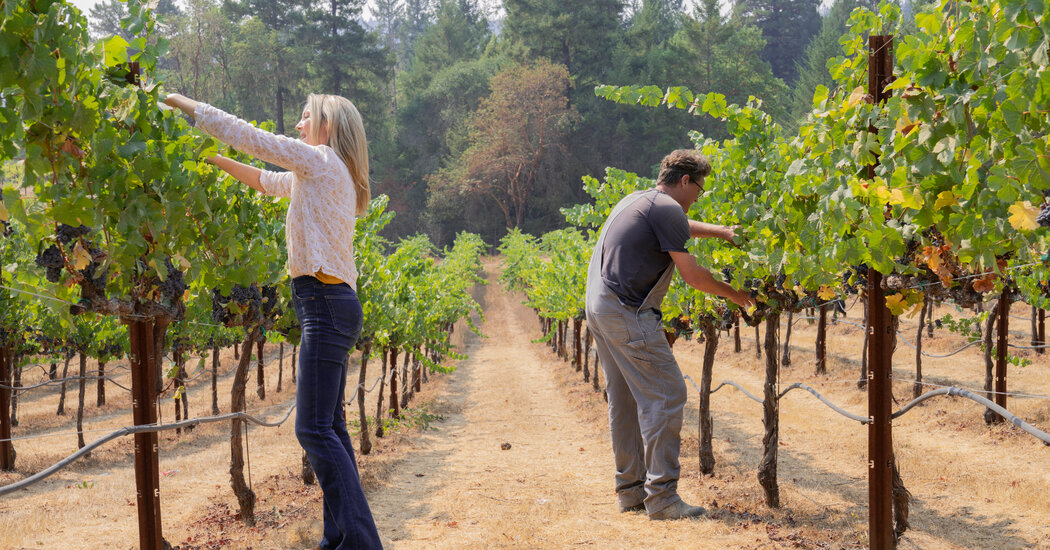
When he wasn’t visiting the vineyards from which Copain was buying fruit, stretching from the Central Coast to the Anderson Valley, he was visiting markets around the country, trying to sell wine. It was a never-ending game of catch-up.
Copain hung on — the wines were excellent, but it was a struggle for Mr. Guthrie. Finally, in 2016, he sold Copain to Jackson Family Wines, a multinational wine powerhouse. Under the terms of the sale, he would work for Jackson for two years running Copain.
Corporate life was a frustrating, unhappy experience for Mr. Guthrie. For a man who values independence, he was now answering to bosses who were both trying to increase production and limit spending. At the conclusion of his contract in 2018, Mr. Guthrie left.
“I had some dark days after I sold the brand,” he said. “Where’s the happy ending?”
It wouldn’t take long to find one. As he tells it, the Boonville estate, with its vineyard planted in 2002 and barn that could be converted into a winery, practically fell into his lap. For Mr. Guthrie, who over time had become drawn more and more to the Anderson Valley, it was perfect. He and his family moved in and, on the fly, made the first vintage in 2018.
What had soured Mr. Guthrie over the previous decade were all the tasks associated with the business side of the wine industry, never the wine itself. He no longer wanted to have to justify farming or winemaking decisions to others.
He had, for example, determined in the last few years that he had been bottling the Copain wines too soon, leaving them too tightly wound when consumers popped the corks. Longer aging before bottling would improve them, he thought, even if sales would be delayed. But he said his bosses refused to consider the request.


